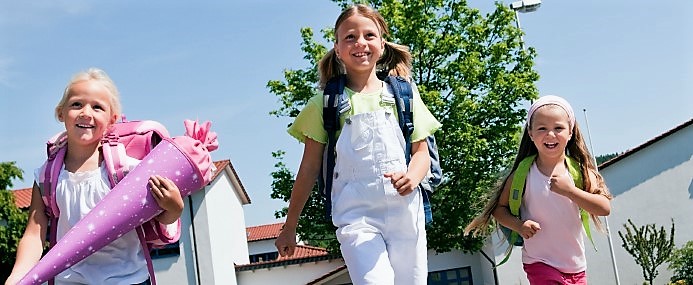Child and Adolescent Development - Department of Clinical and Molecular Medicine
Child and Adolescent Development

Projects
Pediatric neurorehabilitation
Pediatric neurorehabilitation
The Pediatric Neurorehabilitation group focuses on the consequences and rehabilitation after pediatric acquired brain injury (pABI). pABI includes both traumatic (TBI) and non-traumatic brain injury such as brain tumors, stroke, hypoxia and infections to the brain.
Injuries affecting the brain in childhood or adolescence may not only impact various functions at the time of injury/onset of disease, but also functions that are yet to develop. Compromised integrity of the brain due to pABI is associated with cognitive impairment, in addition to somatic and emotional symptoms, and reduced everyday function. Hence, the potential improvement coming from rehabilitation interventions may potentially have important life-long effects. The main aim for the research group is to conduct clinical research in the field of pediatric neurorehabilitation to close knowledge gaps and give rise to new and evidence-based interventions that can rapidly be implemented in clinical practice.
Main project
Our main research project is Cognitive Rehabilitation in pediatric Acquired brain Injury (CORE pABI), A randomized controlled trail. Named Hjernetreningsprosjektet in Norwegian (Brain training).
The main objective of this RCT is to determine the efficacy of different group-based treatment program for children and adolescents with pABI and executive dysfunction. Furthermore, we are interested in investigating potential generalization effects to other domains such as emotional health, fatigue, social function and Health related Quality of Life (QoL). CORE pABI have been designed in close collaboration with relevant user groups and the work is supported by The Research Council of Norway. COgnitive REhabilitation in pediatric Acquired Brain Injury (CORE pABI). A randomized controlled study (NFR)
Preliminary results and achievements
We have previously conducted a pilot study investigating feasibility – including acceptability and limited efficacy testing, of a specific cognitive rehabilitation intervention aiming at improving executive function (EF) after pABI. The specific cognitive rehabilitation intervention was found to be both feasible and acceptable. Furthermore, we found that the intervention improved EF on both neuropsychological tests and questionnaires. Findings further indicated improved daily life EF, as perceived by informants, and improved attentional control. Changes in emotional health failed to reach significance. Basen on these findings, the group initiated a larger RCT – the CORE pABI study. The group have recruited more than 80 participants with pABI, and all participants will have completed the intervention by summer 2019. In addition, the group have completed a study investigating the psychometric properties of some tests and questionnaires recently adapted and translated into Norwegian. Results are not yet published.
Planned projects
The group plans to apply for grants for a long-term follow-up study of the CORE pABI. Furthermore, the group hopes to develop a study aiming to improve magnetic resonance imaging protocols for children with pABI, in collaboration with the Department of Medical Imaging, at SOH.
Contact
Kari Ravndal Risnes, Torstein Baade Rø, Anne Elisabeth Brandt, Espen Lien
Neurology and neurodevelopment
Neurology and neurodevelopment
The research focus is on neurodevelopmental outcome in a comprehensive and holistic view in different risk populations.
This includes longterm outcome in extremely preterm born children, longterm neurodevelopmental outcome after neonatal metabolic acidosis, outcome in extremely rare disorders and function and comorbidities in children with epilepsy. This has today resulted in five peer-reviewed publications since 2016 and in total 6 papers published in very high-impact medical journals (3 in Pediatrics, 2 in JAMA Pedaitrics and 1 in JAMA).
The coming focus is on comprehensive neurodevelopmental outcome in extremely preterm born including function, neurological disorders and overall severity and risk factors for adverse neurodevelopmental outcome in extremely preterm born children as part of the Extremely Preterm Infants in Sweden Study (EXPRESS) and as part of the NORDCAP study).
The epilepsy study will focus on the following studies: Seizures and epilepsy and diagnosed neurodevelopmental comorbidities in school age children in Norway – a retrospective population-based study, data collection is underway and the start of the following three studies: Epilepsy in a population based cohort of children; prevalence, type, severity and etiology- a prospective population-based study, Epilepsy in children and adolescents in the county of Sør-Trøndelag, Norway, neurodevelopmental co-morbidities and associated difficulties, a prospective population-based study and function and quality of life in children with new-onset epilepsy, at time of diagnosis and one year later.
Planned projects
- Epilepsy in a population based cohort of children; prevalence, type, severity and etiology- a prospective population-based study.
- Epilepsy in children and adolescents in the county of Sør-Trøndelag, Norway, neurodevelopmental co-morbidities and associated difficulties, a prospective population-based study.
- Function and quality of life in children with new-onset epilepsy, at time of diagnosis and one year later.
Publications
Maria Hafström, Scopus Author ID: 6507607036
Collaboration
The epilepsy study is a collaboration with Professor Eylert Brodtkorb, Department of Neuromedicine and Movement Science and Dr Kari Risnes and Dr Espen Lien at IKOM.
The Express study includes all paediatric departments in Sweden, the acidosis studies are collaborations with professor Emeritus, Ingemar Kjellmer, Department of Peditrics, University of Gothenburg and Øyvind Salvesen, Department of Public Health and Nursing, NTNU and concerning publications on rare disorders there is ongoing collaborations with the genetic department at St Olav, Marte Haug and Rune Østern and Gunnar Hauge at the genetic department at Bergen University Hospital in addition to collaboration with international genetic institutions.
Contact
Mia Hafström, MD, PhD
NTNU life-course
NTNU life-course
Chronic fatigue syndrome and myalgisk encefalopati (CFS-ME)
Chronic fatigue syndrome and myalgisk encefalopati (CFS-ME)
Chronic Fatigue Syndrome (CFS) and Myalgisk Encefalopati (ME)
